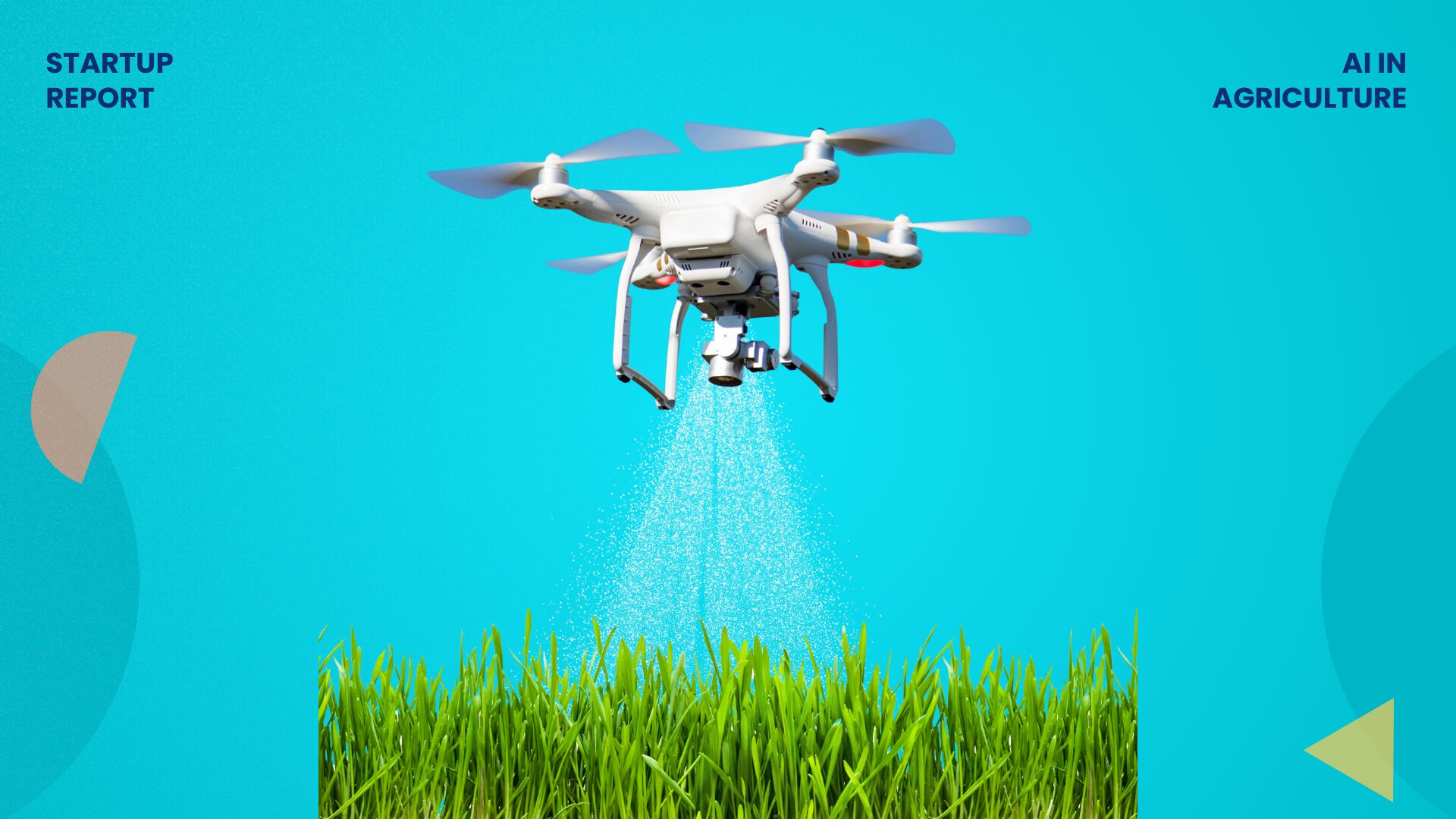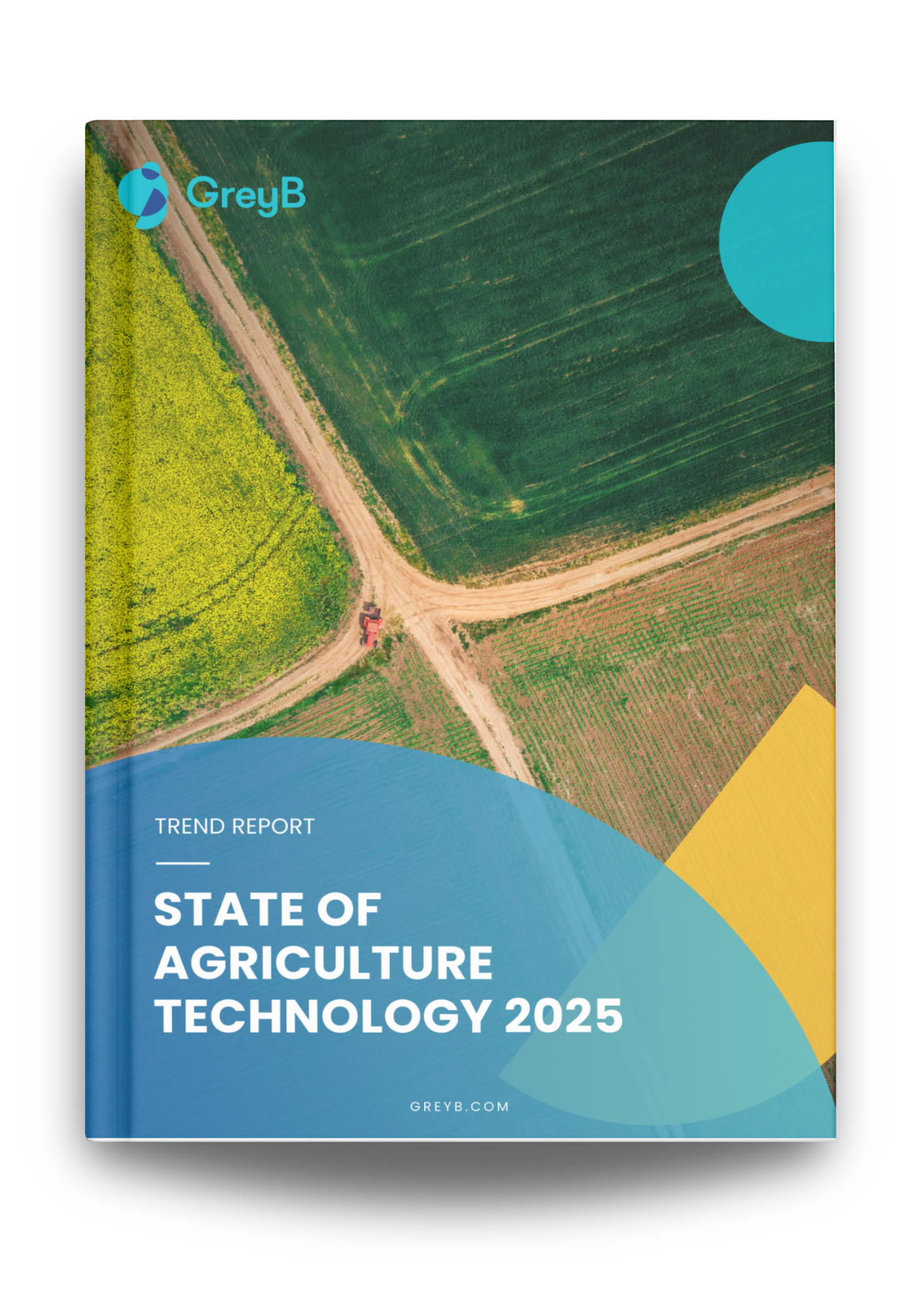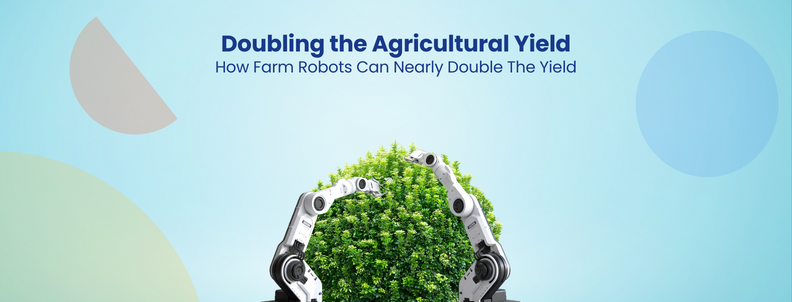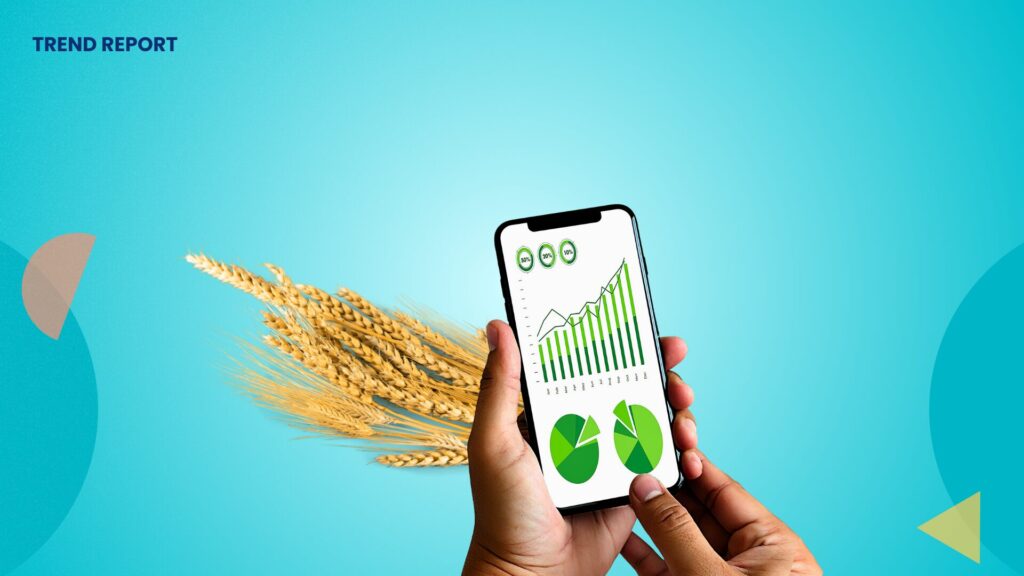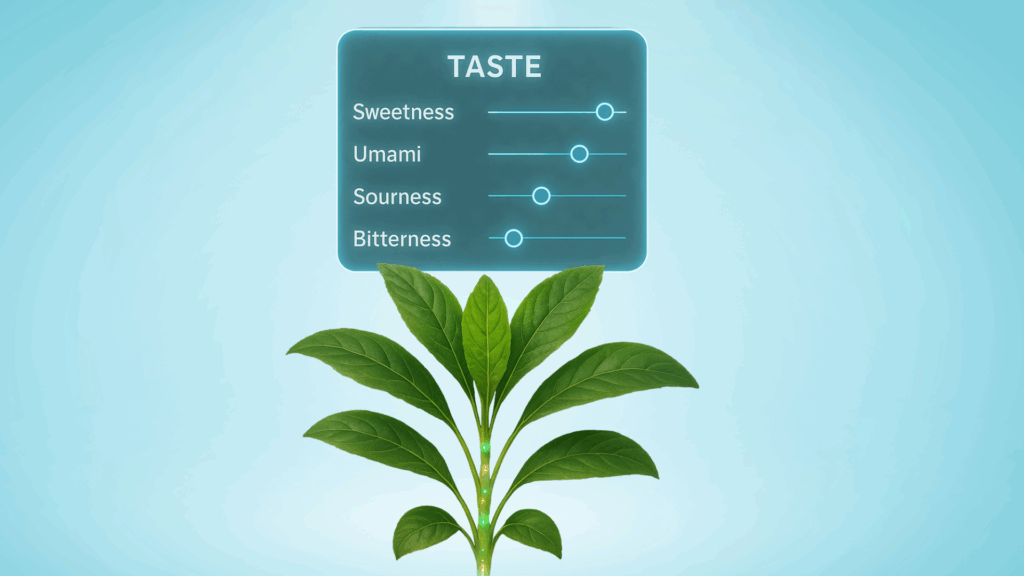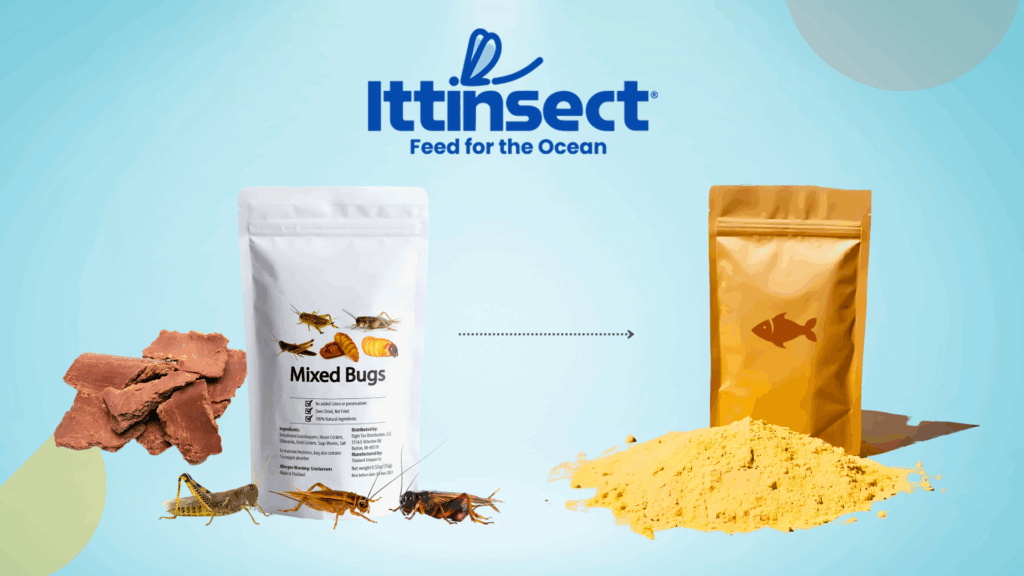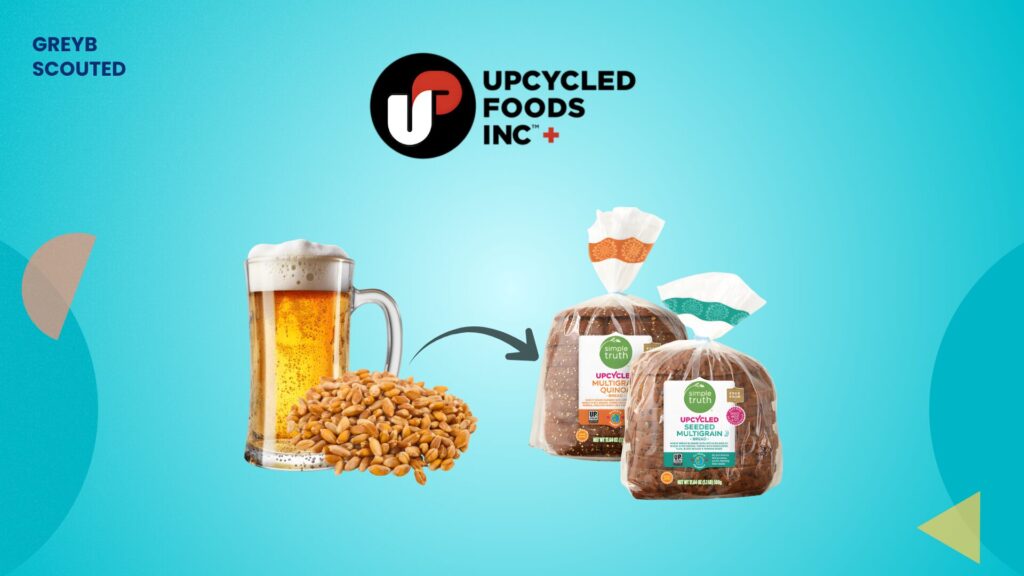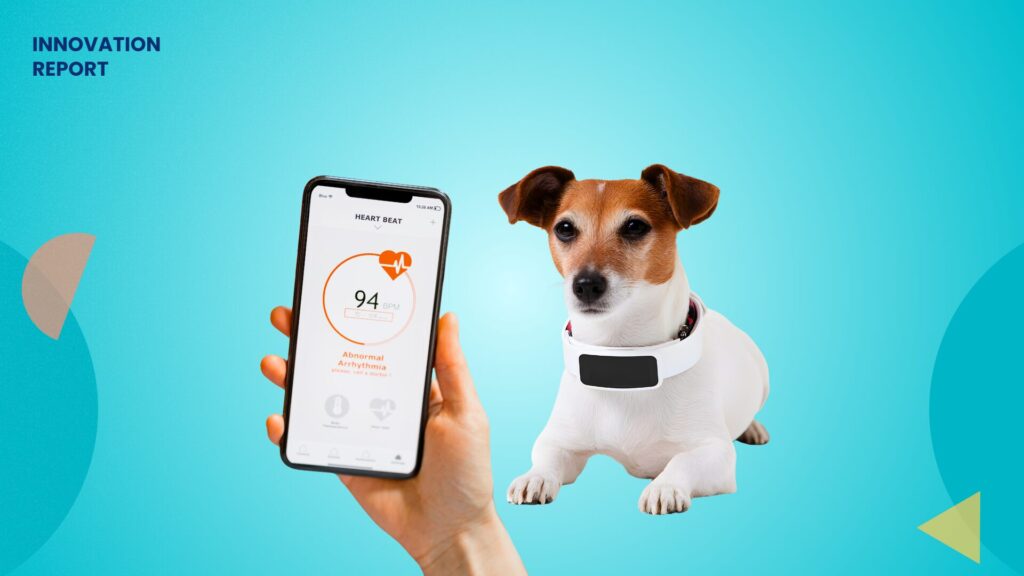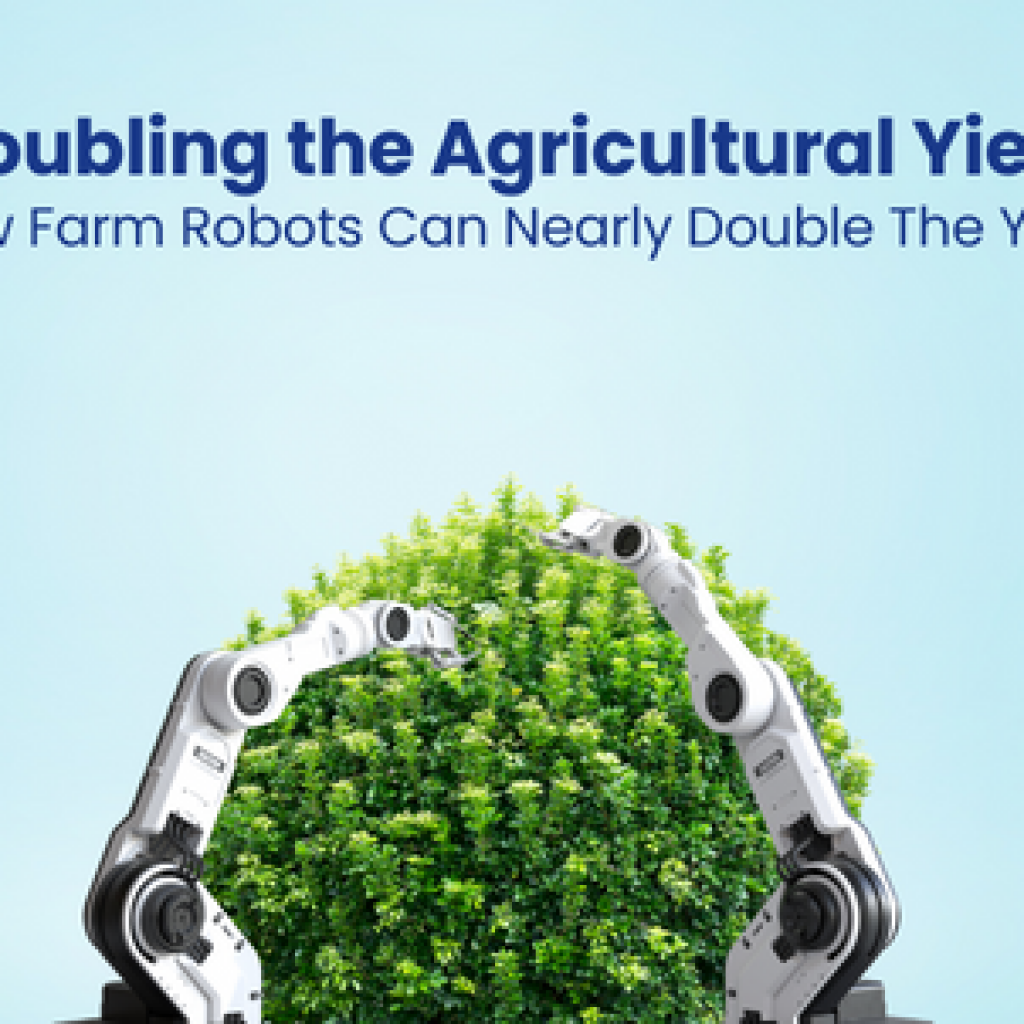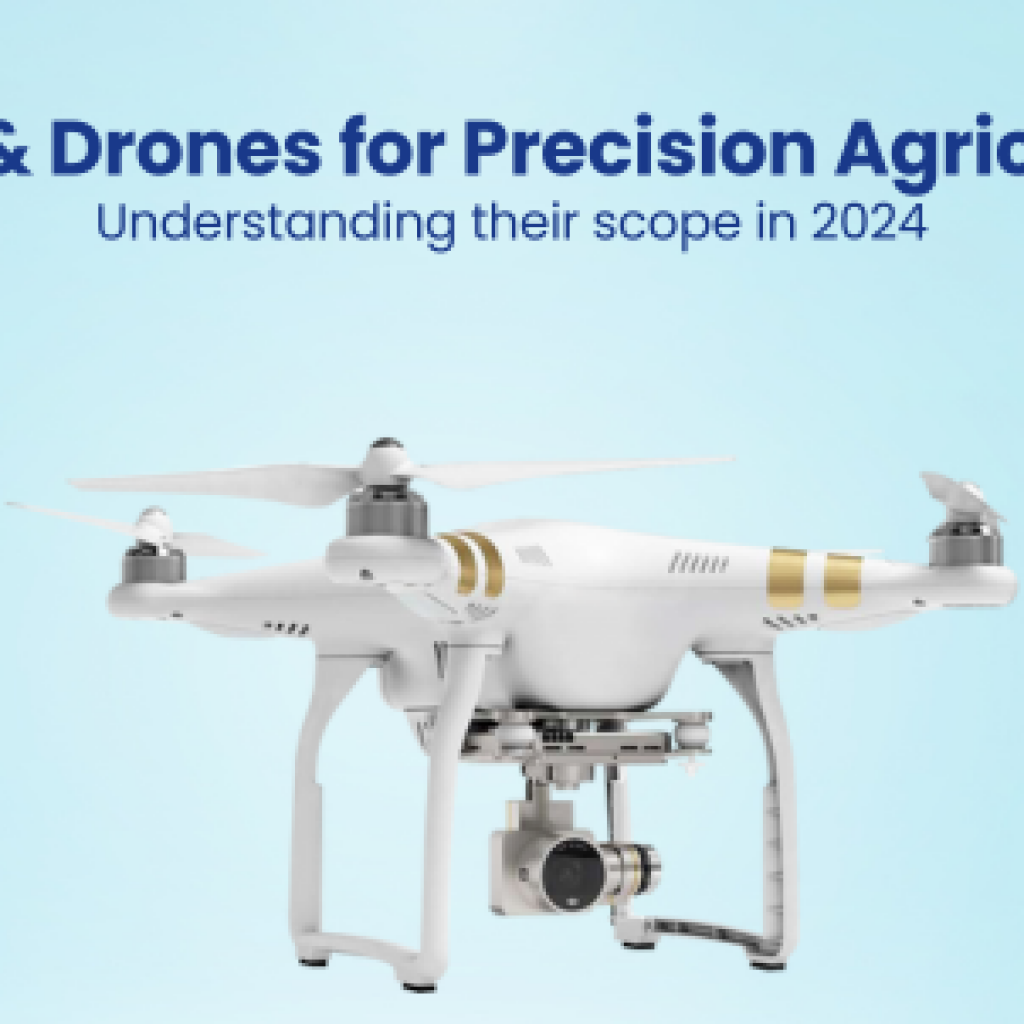The global population is set to hit 9.8 billion by 2050, demanding around 14,886 million tons of World cereal equivalent (CE) food. Astoundingly, up to 40 percent of global crop production is annually lost to pest-related issues. This highlights the urgency of rethinking agricultural practices to improve yields and meet the rising food requirements.
The agriculture industry is achieving this shift towards efficiency and productivity by introducing artificial intelligence (AI) into its systems, replacing conventional methods with advanced, practical approaches.
Our experts are working on compiling a comprehensive report on trends impacting the agriculture industry in 2026. Get access to this upcoming Agriculture Industry Trends 2026 report by filling out the simple form below:
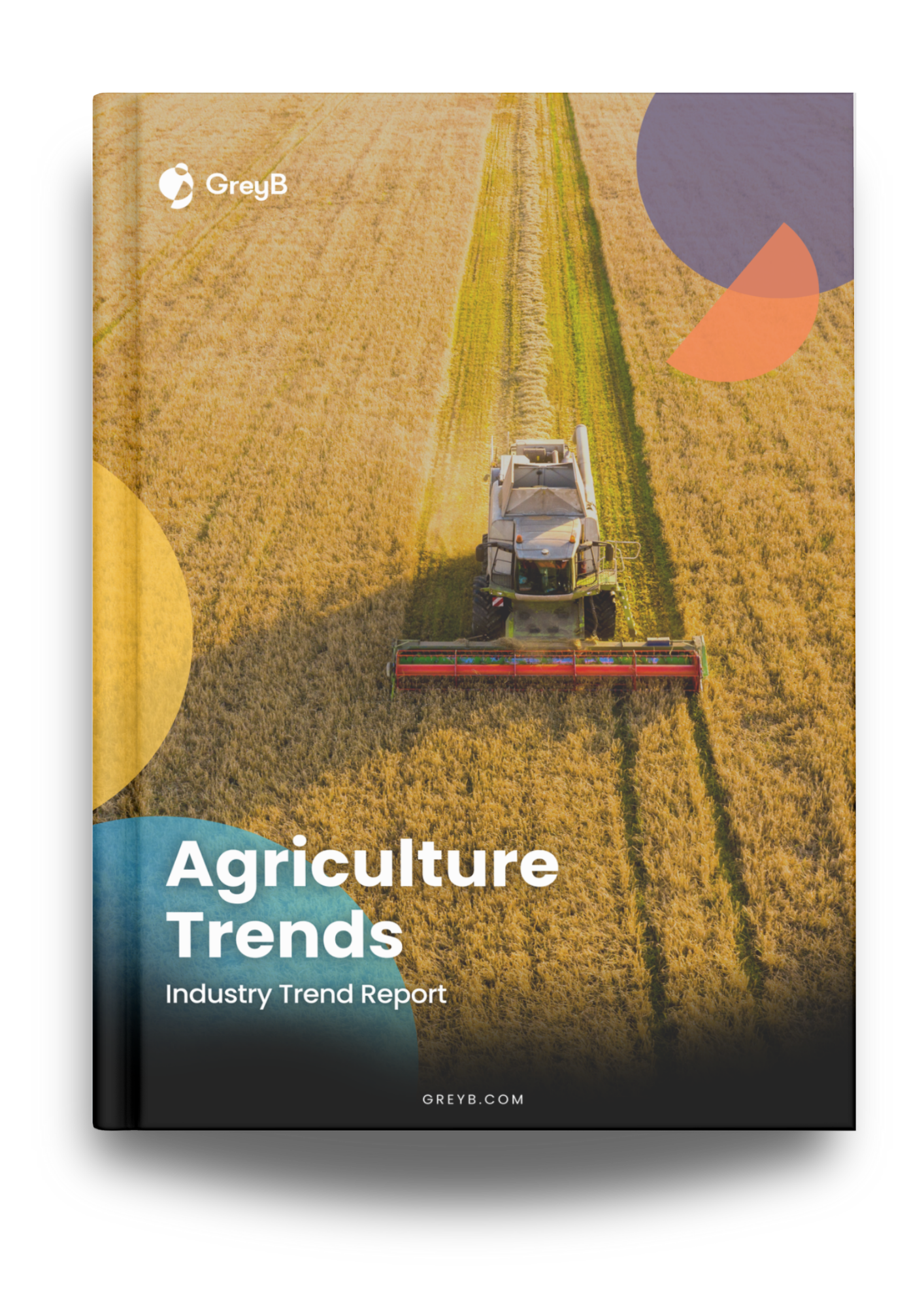
Many companies are adopting AI and ML technology to revolutionize their agricultural practices. This informative article highlights 10 noteworthy startups that are utilizing AI and ML to transform the field of agriculture.
1. Bindwell is discovering pesticide formulas in hours with neural models 4x faster than AlphaFold 3
| Startup Name | Bindwell |
| Founding Year | 2024 |
| Technology | AI-powered neural model for pesticide prediction |
| Website | https://bindwell.ai/ |
Bindwell is a startup founded by teenage engineers Navvye Anand and Tyler Rose to accelerate pesticide discovery using AI. It is a process that has remained largely unchanged for decades.
The San Francisco-based startup has built a suite of neural models that compress weeks of laboratory work into hours or seconds. Its approach (published in Nature) applies principles of pharmaceutical drug discovery, computational biology, and machine learning to the biochemically similar problem of identifying molecules that can harm pests by disrupting their protein structure.
Its flagship tool, Foldwell, predicts the 3D structure of pest-specific proteins roughly four times faster than AlphaFold 3 (Google DeepMind). This helps identify which proteins in harmful insects or pathogens could be targeted by new pesticides. Once a target is identified, its PLAPT model screens a vast compound library.
The startups claim it can evaluate every known synthesized molecule in about six hours to find candidates that bind effectively and specifically to the pest protein without harming beneficial organisms.
For protein-based pesticides, the APPT model predicts protein-protein interactions with greater accuracy than existing benchmarks.
What sets Bindwell apart is its feedback loop: when its models flag uncertain predictions, the team conducts high-throughput wet-lab assays in its San Carlos, California, facility to fill those gaps.
The founders themselves work hands-on in the lab, physically pipetting promising molecules into tiny vials to test binding interactions and validate the AI’s predictions. These experimental results from underrepresented regions of chemical and protein space are then fed back into the models as new training data. This expands the AI’s coverage and reliability across the full range of proteins and compounds relevant to pesticide discovery.
Y Combinator backs Bindwell as an accelerator (Winter 2025 batch) and a lead investor in its pre-seed round, which closed in March 2025 with $500K.
The startup is now mapping pest proteins and working toward its first pesticide candidate. It aims to deliver solutions that are faster to develop, more target-specific, and better adapted to the evolving challenges of resistance in modern agriculture.
Download the 2025 Agritech trends report
2. Red Barn Robotics offers an autonomous robotic field hand for manual intra-row weeding without harming crops
| Startup Name | Red Barn Robotics |
| Founding Year | 2023 |
| Technology | Autonomous Robot for weed removal |
| Website | https://www.redbarnrobotics.com/ |
Red Barn Robotics is developing an autonomous weed-removal robot, the Field Hand, that travels through crop rows and mechanically removes weeds while leaving crops untouched. The robot uses cameras, sensors, and AI algorithms to identify weeds growing between plants in the same row, a task that requires hand weeding and is difficult for traditional machinery.
The system first maps each field, including bed layout, crop type, and growth stage. Then it uses this map, along with real-time camera feeds, to locate weeds and mechanically remove them without human supervision.
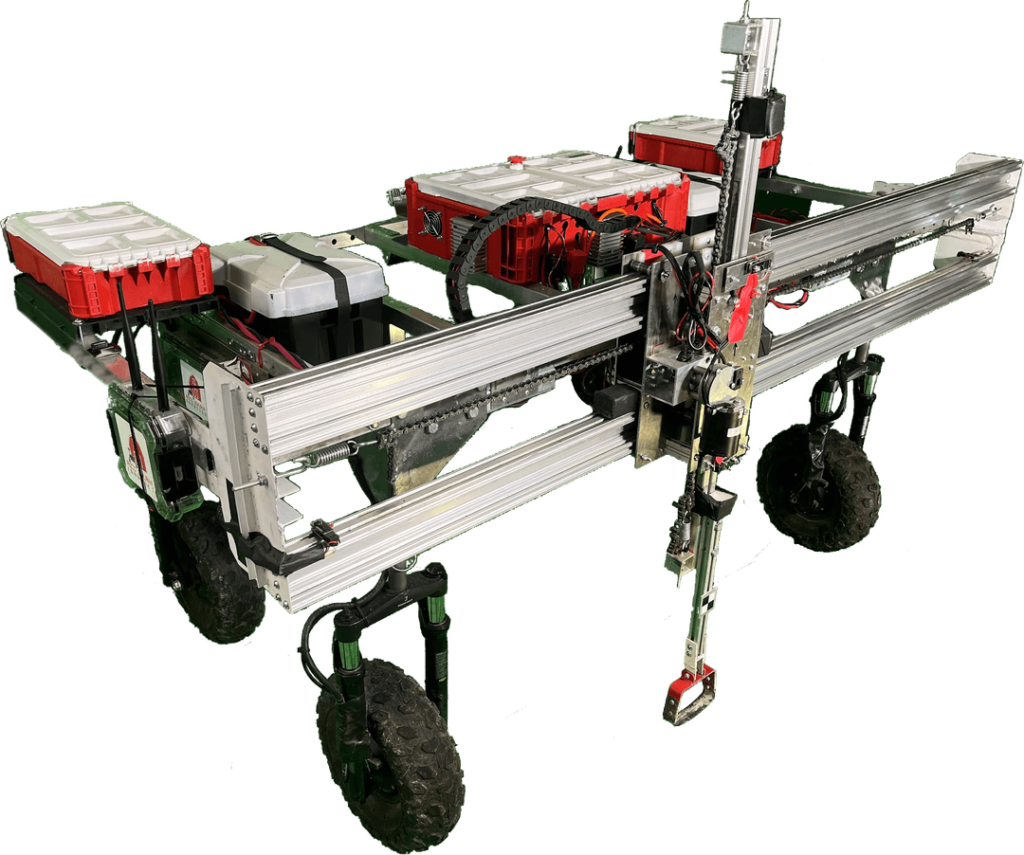

Source: Red Barn Robotics
The founders, Adam Iseman, Ilya Kelner, and Alex Neff, previously worked on autonomous vehicles at NVIDIA and flight software at SpaceX. They are now bringing robotics and AI expertise to agriculture.
Red Barn Robotics positions the Field Hand as a replacement for manual intra-row weeding, potentially reducing both labor costs and herbicide use since removal is mechanical rather than chemical.
The startup service model involves mapping customer fields, creating customized weeding schedules based on crop cycles, and deploying robots that work autonomously according to that plan. While full commercial rollout details are still emerging, the startup describes the service as:
“we map your fields and create a tailored weeding schedule… our robots arrive at your farm and get to work removing weeds according to your custom weeding plan.”
Red Barn Robotics is part of the Y Combinator Winter 2025 Batch. It also raised approximately $500 K in pre-seed funding in March 2025 from investors including Y Combinator, Pioneer Fund, and Ponderosa Ventures. Other investors backing this startup include HorizenNet Capital and Vermilion Cliffs Ventures.
This AI-powered agricultural startup has plans to expand beyond pilot farms. It is adapting its technology for different crop types, row configurations, and for commercial-scale adoption of the Field Hand as a labor-replacement solution in farm automation.
Meanwhile, you can download the agriculture industry trends for last year.
See how GreyB did it
3. Harvested Robotics has a laser weed removal system that can be mounted to a standard tractor
| Startup Name | Harvested Robotics |
| Founding Year | 2023 |
| Technology | AI-powered, laser-based weeding robots |
| Website | https://www.harvestedlabs.com/ |
Harvested Robotics, founded by Rahul Arepaka and George Mathew in Hyderabad, is developing a tractor-mounted weeding tool that uses cameras, AI, and lasers to remove weeds without chemicals.
The system uses onboard cameras and AI to identify individual weeds in real time, with reported accuracy of around 90% and tracking precision within 5 millimeters. Once a weed is detected, robotic arms aim a controlled laser beam at the weed’s stem to damage its water absorption. This prevents regrowth and eliminates the need for herbicides.
The hardware attaches to a tractor’s standard mounting system and draws power from the tractor itself, making it compatible with existing farm equipment.
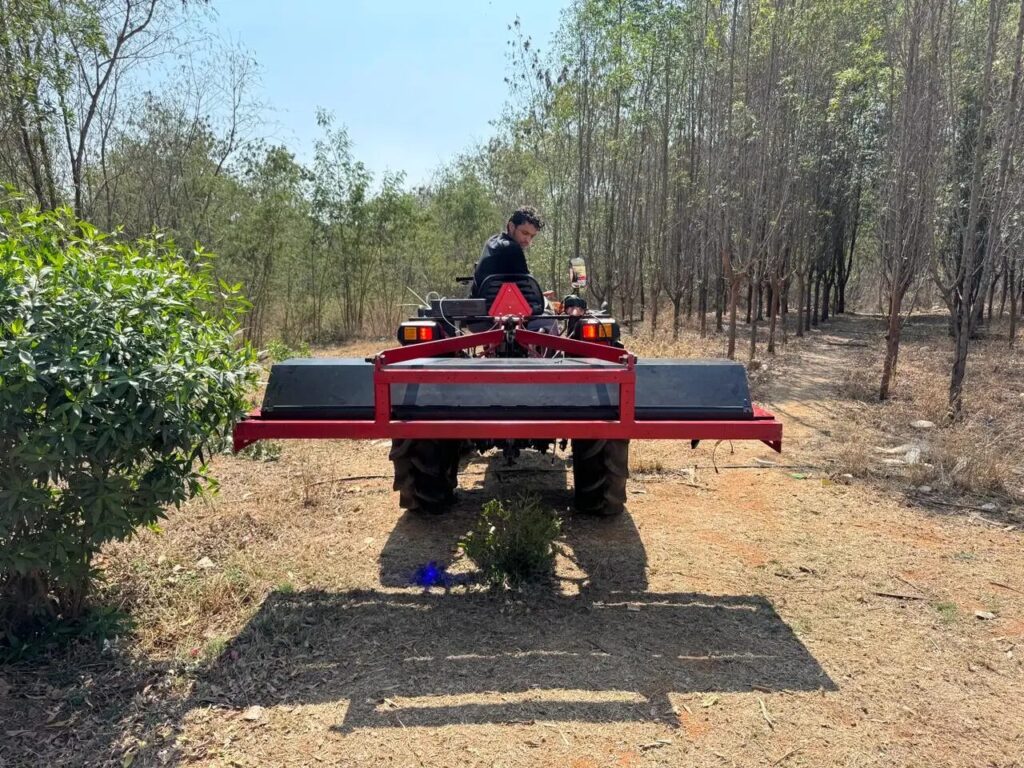
Source: Harvested Robotics
What distinguishes Harvested Robotics from other laser-weeding technologies is its approach to laser design.
Most global systems use a single high-power 1,200-watt laser costing around $40,000, which requires extensive cooling and maintenance, making it unaffordable for small and mid-scale farmers. Harvested Robotics instead built a system using five smaller laser sources that together provide the 200 watts needed to effectively eliminate weeds in Indian field conditions.
This multi-source design spreads heat more evenly, improves operational safety, and reduces equipment and maintenance costs by over 70%, creating a solution that is more affordable and energy-efficient while maintaining the same level of accuracy.
The startup has conducted trials in farms across India. It is also working with Mahindra & Mahindra to test its initial product.
Harvested Robotics is currently in its pre-revenue stage. It is fine-tuning its laser weeders for multiple weed cases and is getting ready to launch its product in the next few months (probably January 2026). This product is expected to reduce the cost of the wedding process by 40-50%. The pricing is yet to be finalised, but is estimated at around INR 10 Lakh. The startup wants to sell its products directly to dealerships, from which farmers can buy or rent them.
In March 2025, Harvested Robotics raised ₹5 crore (approximately $580,000) in seed funding led by Arali Ventures, with participation from Anand Mahindra and Chakradhar Gade (cofounder of Country Delight). It had previously received an investment of 20 Lakhs from Mahindra University. Harvested Robotics plans to use the funds for product development, team expansion, and larger pilot programs.
Farm Robots in Agriculture
4. CloudseedAi can help you decide what to grow on your land for maximum benefit
| Startup Name | CloudseedAi |
| Founding Year | 2023 |
| Technology | AI-powered agriculture app |
| Website | https://www.cloudseedai.com/ |
CloudseedAI is a California-based agricultural technology startup co-founded by Melissa Melia with a team including AI, mobile app design, and agricultural science experts. The company’s main product is a recently launched app called “What Grows Here?”
The app helps backyard gardeners, small farmers, and farm managers decide which crops are best suited for their land. This app combines the user’s local climate, soil, and site conditions with CloudseedAI’s database and AI models to recommend crops tailored to that specific environment. Using this data, the app helps users to identify which crops will grow well in specific conditions, potential risks like drought or pests, and what inputs might be needed.
Co-founder Andrew Smith leads the AI engineering work, while co-founder Matthew Green heads the ecological data science. The app is currently available on the App Store, marking the shift from research to practical use.
CloudseedAI plans to expand the app beyond US users, improve accuracy by incorporating more regional data, and partner with agricultural businesses, landowners, and educational institutions to increase adoption.
5. RegenCrops uses AI and digital monitoring to support regenerative farming practices
| Startup Name | RegenCrops |
| Founding Year | 2024 |
| Technology | AI-powered app and platform to support regenerative farming |
| Website | https://regencrops.ai/ |
RegenCrops is an India-based agricultural technology startup that uses AI and digital monitoring to support regenerative farming practices at scale. It uses field sensors and equipment to collect real-time data on soil health, water use, pest and disease risks, nutrient levels, and biodiversity. This data feeds into machine-learning models that analyze field conditions.
The startup has also built an image-based pest and disease detection system trained on over 800,000 labeled images. This system provides early warnings and practical guidance to farmers. Its digital platform includes a farmer app that combines data from field sensors, weather information, and crop history. The app provides recommendations on cover cropping, reduced tillage, irrigation timing, organic inputs, and carbon storage tracking.
The platform also tracks compliance with EU Maximum Residue Limits and supports eligibility for carbon credits.

In a case study with a hot pepper farm in Telangana, the RegenCrops app identified pest problems through AI image analysis. This helped reduce synthetic chemical sprays from 17 applications to just one approved insecticide. The farm maintained yield while improving soil health and biodiversity.
In trial farms growing hot peppers, tomatoes, turmeric, and rice, the startup reported up to 95% water savings and a 33% increase in soil carbon. They also saw a 76% reduction in synthetic inputs and an 85% drop in pest and disease occurrence while maintaining sustainable yields.
RegenCrops plans to expand its technology across more regions and cover additional crops. It aims to partner with food brands and buyers for the traceability of regeneratively grown produce. The startup also wants to help farmers generate income from carbon sequestration through their digital platform.
It has gained recognition in the food tech sector, being named one of the top seven finalists in the Americas heat of the Global Food Tech Awards 2025. The awards, organized by FoodNavigator-USA and powered by Future Food-Tech, celebrate breakthrough startups addressing challenges in sustainability, food security, and nutrition.
Our analysts found many of these inventions through Slate, an advanced research tool. It’s like ChatGPT, but tailored for patents and research papers. With a single query about agricultural technology inventions, it creates interactive heatmaps like this.

What are the latest innovations in agriculture technologies?
6. Aydi’s AI can improve your farm yield and efficiency by 20% with satellite data and real-time suggestions
| Startup Name | Aydi |
| Founding Year | 2022 |
| Technology | AI-powered agronomy and precision-farming platforms |
| Website | https://aydi.com/ |
Aydi is a Dubai-based agricultural technology startup operating in over 15 countries with offices in Dubai, Madrid, and Cairo. The company offers two main products: aydieye and ORTH.
Aydieye is a farm management platform that tracks labor, supplies, field history, and daily operations in one place, working for farms of any size from single plots to thousands of hectares.
ORTH is an AI assistant that analyzes land conditions, crops, and weather to provide real-time farming advice. It combines satellite imagery and weather data to build detailed models of crop health and potential problems for each individual plot. Farmers can ask questions in plain language (“What is happening in block C10?”) and get immediate answers, rather than searching through data dashboards themselves.
By combining satellite data, weather information, and AI models trained on crop and environmental data, ORTH aims to provide the same advice an agronomist would give, but automatically for every plot on the farm. The company reports early results showing over 20% improvement in yield and efficiency.
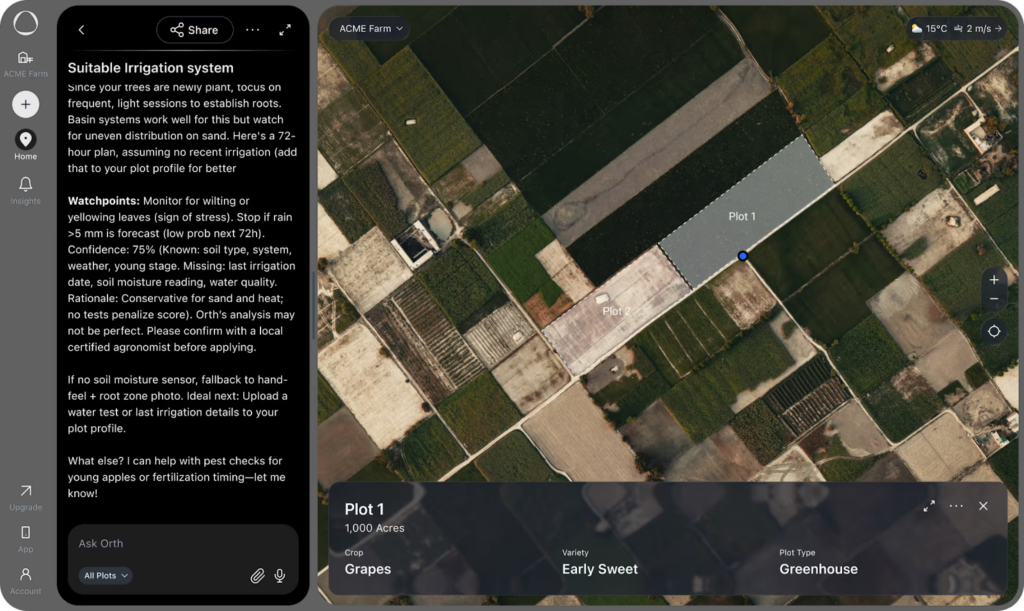
Source: ORTH
The platform also creates schedules for fertilizer and pesticide applications, generates compliance checklists, and provides recommendations tailored to each field’s growth stage.
Meanwhile, aydieye tracks day-to-day farm operations—labor assignments, input applications, harvest records—connecting satellite insights with actual on-ground activity.
ORTH was launched at the Fruit Attraction trade fair in Madrid in October 2024, with both free and paid versions available for farmers and agricultural businesses.
In September 2025, Aydi raised $7.5 million in seed funding led by COTU Ventures, Daltex, and Nuwa Capital, with additional investment from Magrabi Agriculture and Foundation Ventures. The startup plans to use the funding to expand ORTH’s capabilities and enter new markets.
AgTech Startups
7. Farmblox’s universal monitor box and sensors create an ecosystem for easy management of big farmlands
| Startup Name | Farmblox |
| Founding Year | 2022 |
| Technology | Multiple sensors, a universal controller, and an AI platform for farm management |
| Website | https://www.farmblox.ag/ |
Farmblox is an agricultural technology startup that builds modular sensor systems for farm automation. The startup’s products work with existing farm equipment and use AI to provide real-time monitoring and alerts.
At the core of Farmblox is a “universal monitor box” that connects to various customised field sensors. These sensors track and control soil moisture, irrigation pressure, tank levels, weather, and water flow. All the data feeds into a cloud-based dashboard and mobile app.
Farmblox uses AI to analyze the sensor data and identify problems. This includes irrigation leaks, pump failures, freezing conditions, or unusual changes in field conditions. Farmers can spot problems remotely without walking the entire farm.

One example is Goodrich Maple Farm, which uses the Farmblox system across 200 acres of maple operations. The system helps detect tubing leaks and downed lines remotely. This has reduced labor time and costs.
The system works across different crop types, including maple, orchards, vineyards, and nut farms. Farmers can mix and match different sensors and controllers to fit their specific crops and climate.
The platform is designed to function even in remote areas with poor cellular connectivity by using base stations that relay signals between locations. Farmblox claims its platform can cut labor costs by up to 50% and reduce water use by 40% through automated monitoring and alerts.
In 2025, Farmblox launched COP-R-LOCK, a sensor-based security system to prevent theft of farm resources like copper wire, pumps, and fencing. Developed with agricultural crime expert Bobby Rader, the system uses motion and tamper detection to send real-time theft alerts.
This addresses agricultural theft, which costs US farmers an estimated $5 billion annually, with California’s Tulare County alone reporting over $1 million in losses between January and September 2025. Copper wire theft has become particularly common as resale prices reach $3-5 per pound.
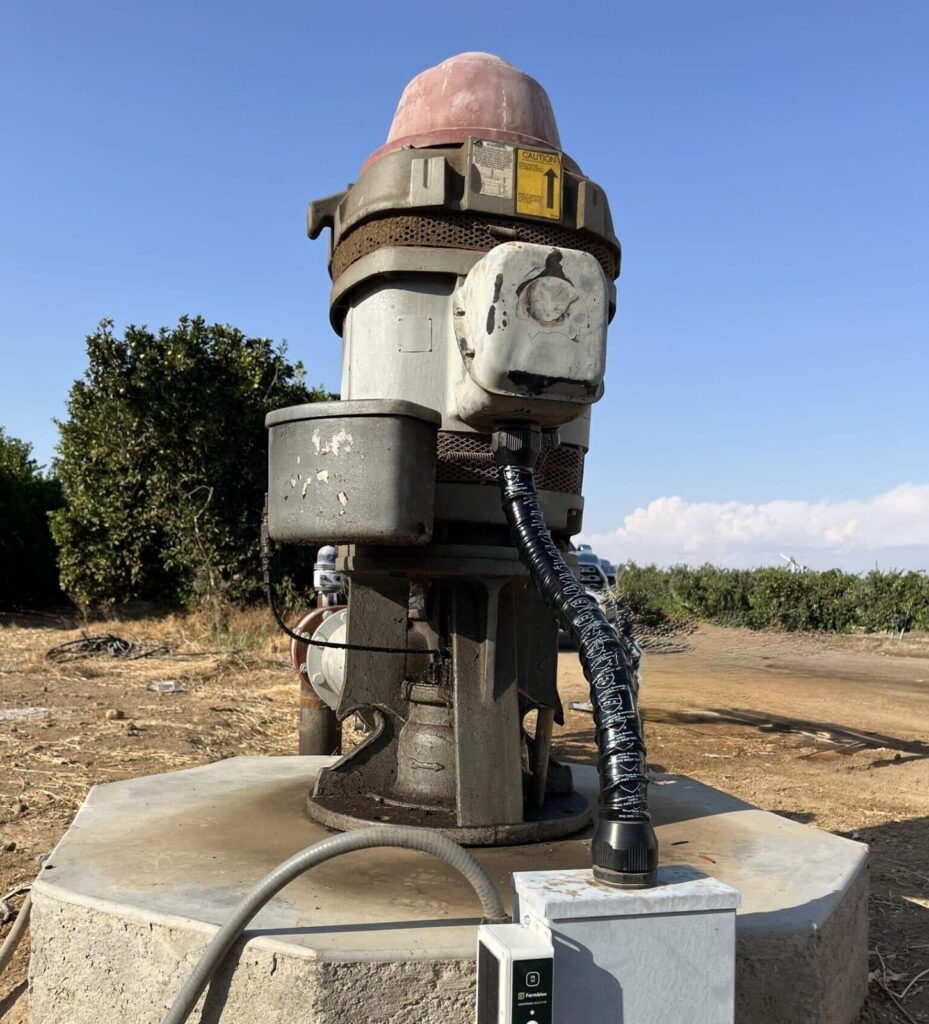
The startup relocated its headquarters to Santa Cruz, California, in 2025 to be closer to specialty crop producers and the Reservoir Farms agtech incubator, while maintaining a regional office in Vermont near maple producers.
In July 2024, Farmblox raised $2.5 million in seed funding led by Hyperplane, with participation from Slow Ventures, MHS Capital, and Service Provider Capital. The round was oversubscribed, showing strong investor interest in AI-enabled farm automation. Farmblox plans to expand into new crop types and grow its customer base beyond North America.
The company is also developing more advanced automation features that will not just monitor conditions but also trigger control actions automatically. It is in discussions with insurance providers to offer premium discounts to farmers who adopt its security systems.
8. Nature Robots offers autonomous robots for regenerative agroforestry systems and bio-intensive farming
| Startup Name | Nature Robots |
| Founding Year | 2022 |
| Technology | autonomous robots for regenerative and organic farming |
| Website | https://naturerobots.com/en/ |
Nature Robots is a German agtech startup that develops fully autonomous farm robots to navigate uneven terrain, create detailed 3D maps of plants over time, and perform farm tasks guided by AI. Its robots use a waypoint navigation system, which works like a network of reference points across the field. This allows the robots to move through fields, gardens, or plantations without constant human control.
The system captures detailed spatial data on plant growth, field structure, and terrain in three dimensions. This goes beyond simpler systems that rely only on GPS or 2D mapping.
Nature Robots emphasizes that it is primarily a software company. Their advanced control software and decision-making algorithms allow robots to operate autonomously, choose tasks, adapt to the environment, and work within regenerative agriculture systems.
What sets Nature Robots apart is its focus on complex farming systems rather than just simple single-crop fields. Their solution is designed for regenerative agroforestry systems and bio-intensive farming.
Nature Robots’ selection as a finalist in the Tech4RegenAg 2025 acceleration program confirms that their technology is seen as practical for real farming operations.
In October 2024, Nature Robots received €6.5 million in funding through the European Innovation Council Accelerator program. This includes €2.5 million as a grant and €4 million in equity investment. The funding supports their project called A-FORWARD: Autonomous Full Farming for Optimised Regenerative and Wholesome Agriculture with Robotics and Deep-Learning. The startup has also raised approximately $5 million in earlier funding rounds.
Nature Robots plans to scale its autonomous farming platform across different crop types. They aim to accelerate deployment in regenerative systems and partner with agricultural machinery manufacturers. The company is also working to commercialize its software platform for farms worldwide.
Regenerative Agriculture Trends
9. Orchard Robotics developed an AI-powered vision system and data platforms for high-value speciality crops
| Startup Name | Orchard Robotics |
| Founding Year | 2022 |
| Technology | AI-powered vision system and software for high-value tree and vine crops |
| Website | https://www.orchard.ai/ |
Orchard Robotics is a US-based agricultural technology startup that develops an AI-powered vision system for high-value tree and vine crops. Its main technology is the FruitScope Vision System.
This is a durable, high-resolution camera unit that mounts on a tractor or farm vehicle. As the vehicle drives through the field, the camera captures millions of images of each tree, vine, or plant. These images feed into their AI engine, which includes the cloud-based platforms FruitScope OS and FruitScope Vault. They analyze fruit size, color, health, crop load, and growth patterns.
The platforms store detailed records for each plant and field block. The startup is planning to soon launch or upgrade its system into an autonomous decision‑making module, branded Canary.
Orchard Robotics’ system is already being used on major US apple and grape farms. The startup is expanding into blueberries, cherries, almonds, pistachios, citrus, and strawberries.
In September 2025, Orchard Robotics announced an oversubscribed $22 million Series A funding round. The round was led by Quiet Capital and Shine Capital, with participation from General Catalyst and other investors. This brings total funding above $25 million.
The startup plans to use the investment to expand across more specialty crops. It also aims to double the team size by year-end and to open a new office in San Francisco to expand its US presence.
10. Calice Biotech cut the time by 50% for bringing new crop varieties to market with its NODES platform
| Startup Name | Calice Biotech |
| Founding Year | 2022 |
| Technology | AI and data science platform for new crop development |
| Website | https://calice.ai/eng/ |
Calice Biotech is an agricultural technology startup based in Buenos Aires, Argentina, with a focus on speeding up crop development. The startup uses a platform called NODES that combines AI and data science to help breeders develop new crop varieties faster.
NODES simulates crop performance by using data like genetics, climate conditions, and soil types. This allows Calice to predict how different crop varieties will perform in various environments, cutting the time it takes to bring new varieties to market by up to 50% compared to traditional methods.

Calice collaborates with seed companies to enhance its crop genetics more efficiently and at a lower cost. For example, its platform helps identify the best varieties for specific regions, optimize input use, and predict crop yields. By using AI to process data, Calice is helping farmers reduce chemical use and improve crop performance.
The startup has already worked with major agricultural firms on proof-of-concept projects with crops like soybeans, maize, barley, and rice. Its predictive models have shown over 90% accuracy, meaning fewer field trials are needed, saving both time and money.
Calice recently raised $2.5 million in seed funding to further develop its platform and expand operations in the U.S., Brazil, and Europe. The startup plans to use the funds to grow its team, improve the NODES platform, and offer its services to more seed companies and agro-input providers.
“We collaborate with seed companies seeking to enhance their crop genetics in less time and at lower costs. Our comprehensive technologies not only benefit their business but also have a positive impact on the environment,”
– Calice team
Conclusion
The startups in this article show how farming decisions are changing and will be completely different in the next few years. Instead of relying only on experience and manual labor, farmers are using AI to spot problems early, remove weeds precisely, and decide what to plant based on field conditions, weather, and geography.
But for innovation leaders, the strategic value lies not simply in adopting the latest gadget or model, but in choosing the right entry point. The startup and solution that align with your organisation’s production scale, geography, regulatory exposure, and long‑term strategy.
As you evaluate potential acquisitions, partnerships, or technology bets, you’ll want to weigh questions like:
- Can this innovation move from pilot to full‑scale?
- Does it bridge across the data‑hardware‑workflow triangle?
- Is the business model suited for the farm sizes, labour realities, and regulatory context you operate in?
- How might competitive dynamics shift as others adopt similar tools?
GreyB can help you spot promising startups through to understanding their readiness, potential blind spots, and fit with your objectives.
Fill out the form below to share your challenges and goals with our experts:
How Can We Help You?
We support industry-leading R&D and Innovation professionals through complex problems. Describe your challenge, and let us bring clarity and expertise.

